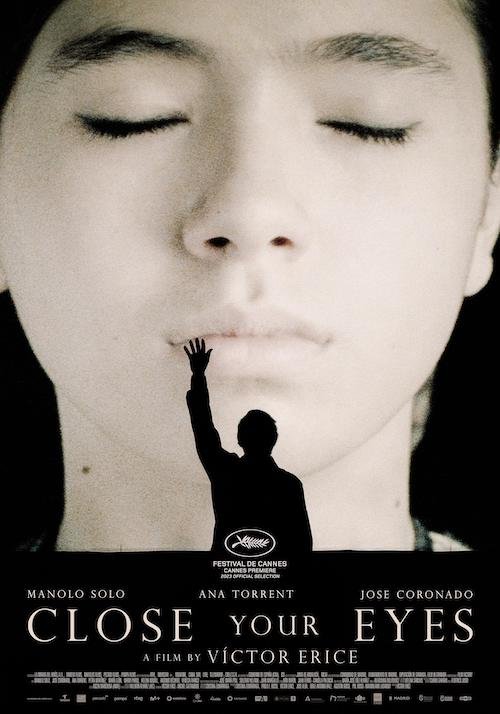Close Your Eyes
Written by Dilan Fernando
Víctor Erice's filmography consists of only four films, each showing a complex understanding of a time period that has been passed over by those whose only memory of that time are deeply scarred souls. Erice is one of the few directors still working today who manages to take the poetry found within characters and create a layered atmosphere, which they must navigate to find some understanding of their lives. The Spirit of the Beehive (1973) and El Sur (1983) are coming-of-age stories depicting children in the learning stages of life which are detrimental in developing their perception of the world. The characters' inquisitive and curious nature seeks to understand topics such as death, love, fantasy, and magic. It's reminiscent of the important things test that is given to the grownups in Antoine de Saint-Exupéry's novella The Little Prince (1943) when asked to describe a picture of a boa constrictor having eaten an elephant to which they say, it depicts a hat. The grownups in Erice's films reply with concise answers in a dry, unmitigated tone, the recipients of these replies create entire belief systems from the basic information they gather to develop an understanding.
The Spirit of the Beehive (1973) and El Sur (1983) each have a pivotal scene where the protagonist asks about a topic that their parents refuse to discuss because of the possibility of the pain that will arise from an old wound. Close Your Eyes (2023), Erice's most recent film, is made up entirely of this aforementioned 'pivotal' scene where a character searches deeply within themselves and their world to help understand how connections are made and fade. The story begins with a film within a film, a recurring plot device that Erice has used throughout his career to show the deep connection between characters and what draws them to those around them. It starts with an ailing father (played by José María Pou), who requests that a man (played by Juan Margallo) search for his estranged daughter in China having been separated following World War II. This is the inciting incident which begins the story and sets in motion the odyssey of a man searching for the connection between his art (work life) and family (home life). Navigating through the memories and lost moments of love, death, art, fantasy, and magic; of all of the topics within Erice's work it is his most personal and understanding tale of lost and found. The film begins on a movie set and ends in a cinema, the bookends which have given life to Erice's work.
Close Your Eyes is a welcome return from an arthouse legend whose presence in cinema was sorely missing for decades.
Mirroring the film production at the start of the film, Close Your Eyes’ main plot begins with Miguel Garay (played by Manolo Garay) searching for the remnants of a film production interrupted by an abrupt change. The longing to have some conception and closure to this lapse in life sets Miguel on a journey of reconnection and adventure. A tabloid television program and its hostess, seemingly interested in finding the lead actor who vanished one evening, really hopes to boost their ratings, assists Miguel. Searching through storage lockers, conversing with his editor of the film, and reconnecting with a lost love, and the lead actor's daughter (played by Ana Torrent), immerses Miguel in the nostalgia. The team of characters fuelled by distant memories and childish wonderment, test Miguel's deep-rooted beliefs. Travelling throughout Spain, Erice photographs the landscape and its inhabitants plagued by ruin, and their slow reconstruction. Miguel becomes a modern-day gumshoe journalist, looking at every detail with great scrutiny and reverence, like an archaeologist. The film's two-hour and forty-nine-minute runtime, though daunting, is well-needed for the audience to grow alongside Miguel. With this film, following his hiatus from the medium, Erice weaves a tapestry on the odyssey of human growth and its effects on connection.
Dilan Fernando graduated with a degree in Communications from Brock University. ”Written sentiments are more poetic than spoken word. Film will always preserve more than digital could ever. Only after a great film experience can one begin to see all that life has to offer.“







